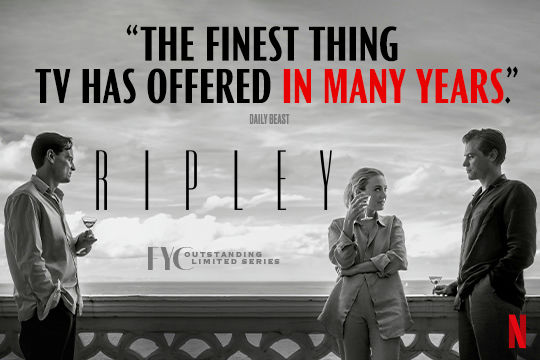 |
 |
|
Hi, and welcome back to Line Sheet. Happy You Can Wear White Now Day. I hope you are relaxing, whatever that means!
I took it real easy last week and only attended one event: Ghia founder Mélanie Masarin’s girl-dinner dinner at the even-more-successful-than-you-think Paris fashion label Sezane’s showroom in a West Hollywood home. There was no actual agenda, and the crowd was mostly made up of Mélanie’s friends, including the jewelry designer Jess Hannah (wearing the perfect Polo barracuda jacket) personal shopper extraordinaire Gab Waller (Gab, I can’t believe I missed you), and social media O.G. Holly Liss Jammet (she used to work for Andrew Rosen!). Anyway, I’m happy to report that I ate enough (protein). And that everything—from Mélanie to the flower-strewn salad boards to the racks of floral dresses to the wine glasses filled with ruby-colored Ghia—was very pretty. More brands should be this relaxed about their activations.
I’m hearing from the outside world that the HBC-Saks-Neimans deal is going to be announced imminently, so maybe more on that this week. As promised, today is a Line Sheet mailbag, where I tackled your burning questions with as much brevity and restraint as I could muster. If you’re one of those freaks who just reads this part up top, consider accessing my agenda-setting reporting by subscribing to Puck. (You don’t just get me, you get one-of-a-kind dispatches from the colliding worlds of entertainment, Hollywood, Wall Street, Silicon Valley, media, sports, the art world, and beyond.)
One final programming note: If you will be in Los Angeles on Monday, June 3, join me at the Roosevelt Hotel at 7 p.m. PT, where I’ll be moderating a conversation between the costume designers from five HBO and Max Originals top shows. Of course, drinks will follow. Sign up here.
Mentioned in this issue: Supreme, Jay Penske, LVMH, L Catterton, James Jebbia, Saint Laurent Films, Loewe, Jonathan Anderson, Chanel, Spencer, The RealReal, Anna Wintour, Will Welch, Vogue, Nicholas Thompson, Roger Lynch, Stella Bugbee, Glossier, Dion Lee, Bottega Veneta, Matthieu Blazy, Kering, Mickey Drexler, The Row, and many more…
|
|
|
| Summer 2024 is upon us, and the fashion industry is in an even weirder than usual spot: Indie brands are dropping faster than flies, luxury labels are no longer growing at warp speed, VF might sell Supreme. What happens now? The answers, at least some of them, can be found inside this mailbag. There’s the requisite Anna Wintour succession talk, thoughts on the future of Glossier, an examination of the symbiotic relationship between fashion and film, and more. Enjoy, and please keep those questions coming. |
|
A MESSAGE FROM OUR SPONSOR
|

|
|
“Andrew Scott is Absolutely Spellbinding.”
– The Guardian
–
[WATCH] Becoming Tom Ripley
Academy Award® Winning Creator and Director Steven Zaillian and Dakota Fanning discuss Andrew Scott’s performance in Ripley.
–
For more on Ripley, go to series.netflixawards.com
|
|
|
| I would like your take on the possible sale of Supreme and potential buyers.
A few weeks ago, Evan Clark over at WWD reported what was already suspected: that VF Corp. is seriously considering selling Supreme, and even hired Goldman Sachs to explore its options. (The devil activist investors made them do it.)
First of all, some free advice to Jay Penske: I didn’t know about Evan’s story because WWD (which I pay for, by the way) does a TERRIBLE (caps necessary, sorry) job at surfacing its stories. Oddly and wrongly, the Supreme story was not the subject line of the May 14 morning newsletter. Instead, it was Diane Kruger’s “collaboration” with Jason Wu for Cannes. I don’t want to be mean about this—I like Jason Wu, I am sure Diane Kruger is nice—but it is insane. This is not InStyle, this is WWD, and I promise you, the collective internet cares more about Supreme anyway.
But back to what may happen. First of all, let’s sell this baby! This is a prime brand, with limited distribution, that can’t do much for VF because VF needs to please investors each quarter, not carefully manage a cultural powerhouse. Yes, I understand that Supreme is no longer cool to the certain group of people who made it cool. But I am going to let you in on a little secret: A lot of people never thought it was cool. Also, it will be cool again, I promise. Or a different kind of cool.
As for who should buy it? I want to say LVMH or L Catterton are the appropriate takers. The margins on Supreme t-shirts are nowhere near the margins on a Louis Vuitton clutch, but Supreme (meaning: James Jebbia) could teach LVMH something about people and why they want what they want. What will probably happen: It’ll be a far less desirable suitor, one that will further deteriorate things by opening too many stores and widening wholesale distribution. What should actually happen: Jebbia somehow buys it back, and then retreats.
The one caveat: I wonder if Jebbia baked something into his contract with VF that gives him more control over what happens to the business than a founder who sold out would typically have. It’s notable that the company hasn’t expanded its distribution via wholesale, Fear of God Essentials-style—it feels like a desperate VF would have gone there if that was an option.
I am happy to start reporting on this more closely if there is interest, so let me know. (Also, guys, yes, I know about the sweatshirt, and am saving it in my back pocket for a rainy day.)
What does the rise of supplied wardrobe items in film and television mean for the (relative) creative independence of the costume department?
This person is referring to the fact that, these days, fashion brands often supply clothing for television shows and movies and, in some cases, actually put up money to get them produced. (Saint Laurent Films, as I recently noted, is the most obvious example. But there’s also Jonathan Anderson designing costumes, and dropping an occasional Loewe piece, into Challengers, for example.) Will an increase in these product placements ruin the art of costume design?
If you wanted to be a Debbie Downer about it, you could say that this is what happened to magazines. The brands with the money and influence to buy placements became the priority of the creative people putting together the magazines, and then the magazines became boring, and then all the interesting people left. (There were other big problems, of course!) But could this happen to costume design, too? I don’t think so. Movies are not magazines, even if brands are treating them that way.
At the moment, it’s a nonissue: Even sponcon-ish movies like Spencer, supported by Chanel—which supplied the costume designer with access to its archives—have a certain creative integrity. And remember, this is not a new phenomenon, and can result in iconic pairings, like Giorgio Armani/American Gigolo, Givenchy/Breakfast at Tiffany’s, or even American Eagle/Dawson’s Creek. The difference now is that sometimes there is money, not just product, on the line. And that, given the decay of trusty channels, this tactic may have migrated from clever to necessary.
The bigger thing, though, is that there are just too many too-small movies for sponcon to take over, and the R.O.I. is minimal, if even possible to decipher. Our costume departments are safe for now, although, like everything else good in this world, they are likely suffering from budget cuts and less time to get more done. (That said, I’m going to see a bunch of costume designers next week and will investigate further.)
Why are there so many archive and sample sales lately? Is it a money grab for designers hoping to make a buck in tough times? A new marketing trend which brands are jumping on thanks to the virality of sample sale culture? Or another reason entirely?
All of the above. Also, it’s never been easy to sell secondhand clothes, and it’s never been harder to make the appropriate amount of money on those sales. The RealReal’s pricing strategy is wack, and the commission rates don’t feel as fabulous as they used to. Vestiaire, eBay, Grailed are all a pain on some level: You have to do a lot of work to make your items salable, especially at a price you like. If you’re a person with notoriety, or just wealthy with a fabulous wardrobe, creating a big to-do around the sale of a certain set of clothing items will result in those items selling for more than they would if they were sold privately. All that said, I am not wealthy or famous, and yet I am this close to doing an Instagram sale after this past weekend’s closet clean-out. Direct-to-consumer is simply more profitable! Liana, call me? (Just kidding, I have like, five things to sell.)
|
|
A MESSAGE FROM OUR SPONSOR
|

|
|
“Andrew Scott is Absolutely Spellbinding.”
– The Guardian
–
[WATCH] Becoming Tom Ripley
Academy Award® Winning Creator and Director Steven Zaillian and Dakota Fanning discuss Andrew Scott’s performance in Ripley.
–
For more on Ripley, go to series.netflixawards.com
|
|
|
| Recent rumblings of New Yorker editor David Remnick succession make me, of course, ask, yet again: What is the plan for Anna?
She will have to go someday, but will Condé Nast go with her? My suspicion: At a low-carb 74, she will continue to work for as long as she can, and when she steps down as Vogue’s editor-in-chief, she’ll have some sort of emeritus role, and the magazine will be run by committee for a good while. (Virginia Smith and Mark Guiducci could do it with their eyes closed.)
If Biden wins again, will Wintour finally be appointed U.S. ambassador to the United Kingdom? The thing about that job is that it does not come with a large staff, or a large budget, and while I assume she would take it at this juncture—what a dignified way to escape Condé—it would be quite the adjustment for someone used to controlling so much. It feels too small for her in many ways, even as she enters her twilight years. These jobs are also expensive as hell, and who knows if she would want to fund the vanity operation, herself, unless she has some sort of deal with the Newhouses.
I suspect, when it’s time, Will Welch will be named chief content officer of Condé, because he’s great and there are no other options. Perhaps the Newhouses are reading this and attempting to recruit The Atlantic’s Nicholas Thompson to replace C.E.O. Roger Lynch as we speak, but I’m doubtful. Nick is a former editor, and the company, despite its grievances, needs a real operator in charge.
As for who will be the next editor-in-chief of Vogue, I can name a few names. Let’s start with Stella Bugbee, the Styles editor and the reason we all care about The Cut. She’ll be embarrassed, and probably also a little annoyed, that I’m mentioning her, but she’s one of the few editors left with a point of view. Stella thinks of fashion as a cultural pursuit. Whatever Vogue becomes next, it’ll need to feel different than what came before it. But again, whatever comes next may not come for many, many years. (Remember, famed Condé editorial director Alexander Liberman didn’t officially retire until he was 82.) And who knows what will be left of Condé by the time it does? We’ll keep checking in for you.
Do you think Glossier has lost its cultural cachet? What happens when these millennial cool-girl brands, which helped define an aesthetic, have their lunch eaten? Is Glossier just merch now?
Rachel will have more on Glossier soon, I’m sure, but I do have an opinion here so I am going to give it. Yes, I do think Glossier has lost some of its cachet. Sales may be growing, but it’s not sticking in people’s minds the way it used to. The only way it’s going to get cool again is if the product gets better.
What do you make of Australia’s fashion trophy-boy Dion Lee going into voluntary administration? With his Miami store opening last Basel, it comes as a surprise.
I’m honestly never surprised when a brand that has expanded very quickly by opening several physical stores goes bust. Lee’s investor was an Australian retailer called Cue, and it sounds like they just no longer wanted to put up the money. It also sounds like voluntary administration in Australia is very similar to Chapter 11 here in the U.S., which means Lee won’t have to stop trading. Lee’s biggest market is the U.S., which is part of why he moved much of his operations here a few years ago. I doubt he’ll have to liquidate—someone will invest if the growth is as good as the company has said it is. This is just what happens to small, independent brands.
I’m curious to know your take on Bottega Veneta. Why is it still a “small” brand in the Kering portfolio, and why is it not growing faster? Why has it not reached $3 billion or $4 billion already, like a Celine, Saint Laurent, or Prada? Are the bags too expensive? Is there a disconnect between the ready-to-wear and bags? Is it a lack of aspirational bestselling items/categories at the bottom of the pyramid?
A loaded question. The sweeping answer is that, ever since Matthieu Blazy was installed as creative director in 2021, Kering seems to be taking the long view with Bottega, which is the most classic, least Fashion, of its brands. Blazy restored balance to the label, which became too trendy under the watch of previous designer Daniel Lee. (Lee’s Bottega look had a crash-and-burn feeling about it. Those jumbo-weave bags already appear dated.) Blazy’s sneakily textured bags and clothes play together wonderfully, and speak to a new customer while also respecting the decades-long Bottega customer. (Consider the leather “denim” overshirt. Pure luxury that comes off as casual.)
It all feels like it’s coming together commercially now, which you can see in Kering’s results. As for the price of the bags: I do think they are quite high, and that is something Kering is going to have to stand by in order for the customer to get used to it, eventually. My whole thing with every handbag maker: Why should someone buy your bag and not an Hermès? Kering and Bottega will have to continue strengthening their argument. And speaking of Hermès, remember, they only recently launched cosmetics. They do everything with intention, and in order for Bottega to continue flourishing, that’s the way they’ll have to do it, too. Let’s hope Bottega doesn’t get too big, too fast.
When did you become interested in fashion?
The famous merchant Mickey Drexler has a theory about your work being in your DNA. (I’ll let him explain it to you another day), but I guess that’s partially true for me. My parents met in the late 1970s when they were both buyers at a denim store in Columbus, Ohio. (My dad says it was called “Levitation”—get it, they sold Levi’s—but I’ve never been able to find any info on this, so don’t fact-check me.) It’s not like they went to college to study this—one didn’t go to college, the other was a dropout—but it was an era when most buyers were sales associates, too: Every store bought its own merchandise, and the people working there would pick the goods.
By the time I had memories (I was born in 1982, so say, 1985), my parents were out of that line of work, but I do remember my mom’s Halston perfume and love of Calvin Klein minimalism, and my dad’s Ralph Lauren polos and his incredibly neat appearance. They were very, very brand conscious, and so from a young age I was also interested in brands and putting together outfits. (I was obsessed with the color red, still the color I would pick if I had to pick only one.)
I don’t remember a time when I wasn’t interested in fashion, and by my early teens, after coming to the realization that Joan Lunden’s job was not great for a person who doesn’t like public speaking or people looking at her, I decided I wanted to be a fashion journalist. The rest is definitely history!
|
|
|
|
|
| An update on the LVMH executive musical chairs drama: Pierre-Emmanuel Angeloglou, Michael Burke’s deputy at the LVMH fashion group, has been named C.E.O. of… Fendi. The current C.E.O., Serge Brunschwig, who’s been with the company since 1995, is being moved into a larger role within the group, says Miles. (My sources say it’s the Fashion Group C.E.O. job recently vacated by Burke, but I wouldn’t be surprised if there is more nuance in the way it’s communicated.) Perhaps this will all be sorted by the end of the week. [WWD]
Meanwhile, Fendi womenswear designer and Dior menswear designer Kim Jones wiped his Instagram account clean. [See]
The Row has indeed opened in Amagansett. I told ya! [The Row]
Loved this interview with Willa, but especially the recommendation to read parenting books in lieu of management books. [Please Change the Name of This Podcast, Just for Me! You Are All Magazine Editors, Right? You Must Know This Is Not a Good Name!]
I enjoyed scanning this New York Social Diary-style gallery of well-connected fancy people, including Anna Wintour, (Puck lover) Leandra Medine, and the sibling founders of Paperless Post, Alexa and James Hirschfeld. They were all hanging out because Paperless Post turned 15. Did you know Mousse, the Wertheimer family office, was an early investor? [Vogue]
Brad Pitt and Yohji are collabing. [Hypebeast]
I have no idea if this photo is of two people hanging out or dating, but I support these two fashion fans getting back together (never forget the Vogue internship) if that is indeed what is happening. [Deuxmoi]
Advertising inspo for the Summer Olympics in Paris. [Twitter]
I reread Nora Ephron’s book of media criticism this weekend. Don’t skip her takedown of the Goodwins or her evisceration of People magazine. [Scribble, Scribble]
This came up on one of my many Google alerts and is from January, but did you know that Uniqlo sued Shein for “copying” the nylon bag that Becky Malinsky made famous? [CNN]
Forget about succession for a single moment: There’s always a chance Larry Gagosian will just shut it all down! For now, though, Puck’s Marion Maneker explains what to make of Gagosian’s appointment of former Sotheby’s exec Brooke Lampley. [Wall Power]
|
|
|
| And finally… I wrote this while listening to “The Dark Don’t Hide It” … Kevin Morby and Waxahatchee version. Can you tell?
Until Wednesday,
Lauren
|
|
|
|
| FOUR STORIES WE’RE TALKING ABOUT |
 |
| Zaz Game Theory |
| Envisioning David Zaslav’s internal monologue. |
| WILLIAM D. COHAN |
|
 |
|
 |
|
 |
| The Ron Revival |
| Chronicling Ron DeSantis’s post-’24-campaign revival. |
| TARA PALMERI |
|
|
|
|
|
 |
|
|
|
Need help? Review our FAQs
page or contact
us for assistance. For brand partnerships, email ads@puck.news.
|
|
You received this email because you signed up to receive emails from Puck, or as part of your Puck account associated with . To stop receiving this newsletter and/or manage all your email preferences, click here.
|
|
Puck is published by Heat Media LLC. 227 W 17th St New York, NY 10011.
|
|
|
|










